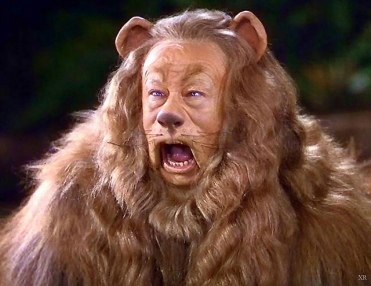Recently, I had the pleasure of hearing Harvard Law Professor Dr. Randall Kennedy at a Forum for Independent Educators put on by the Facing History and Ourselves organization. His incredible words forced me to think about my own beliefs and also how others think of me as I fight for equity and inclusion at my school. One thing that struck me was his discussion around the concepts of tolerance and intolerance and the assumption that the former is automatically good and the latter automatically bad. In reflecting on Professor Kennedy’s words and this week’s political outcome, these two concepts have weighed heavily on my mind. Furthering my thoughts are the accusations that “raging liberals,” (which I guess I am according to these social media posters) are intolerant of our democratic process and the country’s right to choose because we are fearful of and saddened by the election results.
I thought I’d take some time to reflect on the idea that I’m intolerant, and in doing so realized something. Perhaps these Facebook friends are right.
Yes, I’m Intolerant.
I’m intolerant of the idea that women are sex objects meant only to serve men, bear children, and look a certain way. Of the idea that it’s okay that I may get paid less than someone who does the same job because I have different sex organs. Of “locker room” talk that objectifies my gender and jokes about sexual abuse.
Yes, I’m Intolerant.
I’m intolerant of the xenophobia that puts a target on the backs of innocent people, labeling them as terrorists and murderers, because of the actions of some. That makes children cry and hide their beliefs because they fear physical or emotional harm.
Yes, I’m Intolerant.
I’m intolerant of clothing, comments, harassment, flags, and chants that create exclusion and marginalize individuals for the color of their skin or the country of their birth. Of the belief that color is not an issue and the refusal to acknowledge the discrimination and prejudice that millions in our country face.
Yes, I’m Intolerant.
I’m intolerant of the refusal to believe that some individuals are born with certain privileges that give them automatic opportunity. That their birth “luck”makes it significantly easier for them to achieve the American Dream and overcome challenge.
Yes, I’m Intolerant.
I’m intolerant of the unwillingness to take the time to learn about difference in hopes of understanding. Of the culture of exclusion that stems from the idea that there is only one right way to be, love, act, or believe.
Yes, I’m Intolerant.
I’m intolerant of attitudes and behaviors that do not allow people to feel anger, sadness, fear, or disbelief because of the way they are treated. That instead make fun or place blame while refusing attempts to understand where the emotion comes from.
Yes, I’m Intolerant.
I’m intolerant of language and actions that make fun of people with disabilities. That stigmatize mental illness and people who cannot think or behave according to approved social norms.
Yes, I’m intolerant.
I’m intolerant of the idea that an American must look and sound a certain way.
Yes, I’m intolerant.
I’m intolerant of ignorance.
… of inequity.
… of exclusion.
… of miseducation.
… of inhumanity.
… of intolerance.
I AM Intolerant.
I do try, however, to be tolerant of other’s viewpoints, even when they differ greatly from mine. I try to be tolerant of those people on the other side of the fence that are hurting in a way that I don’t understand. I try to be tolerant of those who may not know as much as me but are willing to learn more. I will acknowledge that I, myself, have made mistakes, and that I have contributed, knowingly and unknowingly, to the problem. I will recognize that I still have a long way to go in my journey to understand.
I will respect why others made their choice, knowing, as I’ve taught my students, that there are so many determinants in deciding a candidate, and that understanding these perspectives helps create unity. I will respect our democracy and the office of the presidency and have faith in our constitution.
But, I refuse to be stagnant, and I refuse to be tolerant of the idea that there are not massive problems in our country; that racism, sexism, religious intolerance, and xenophobia had no impact; that there is no such thing as privilege; that everyone has the same opportunities in this “boot-strap” country. I will not accept these ideas as truth and will not pretend that this election did not prove that we have work to do to live up to the founding fathers proclamation that ALL are equal – and that that work didn’t just get a whole lot harder.
For many, it might be easy to ignore this right now, to focus on other things, to gloat and celebrate in the knowledge that their choice won. And maybe because I get angry at that sentiment, I am intolerant. But if that’s true, you can keep right on calling me that.


